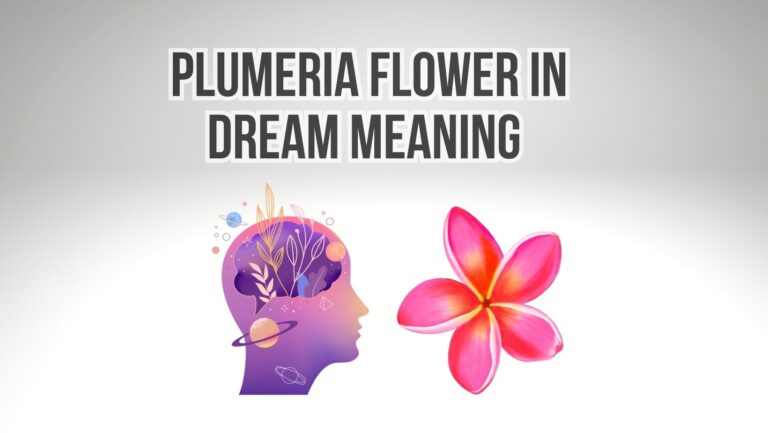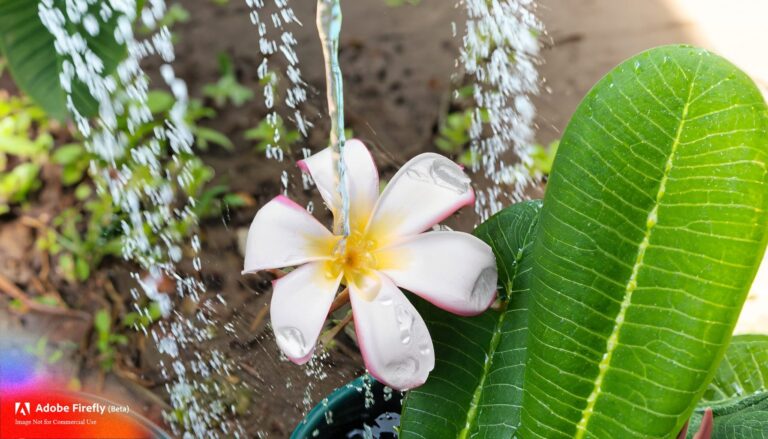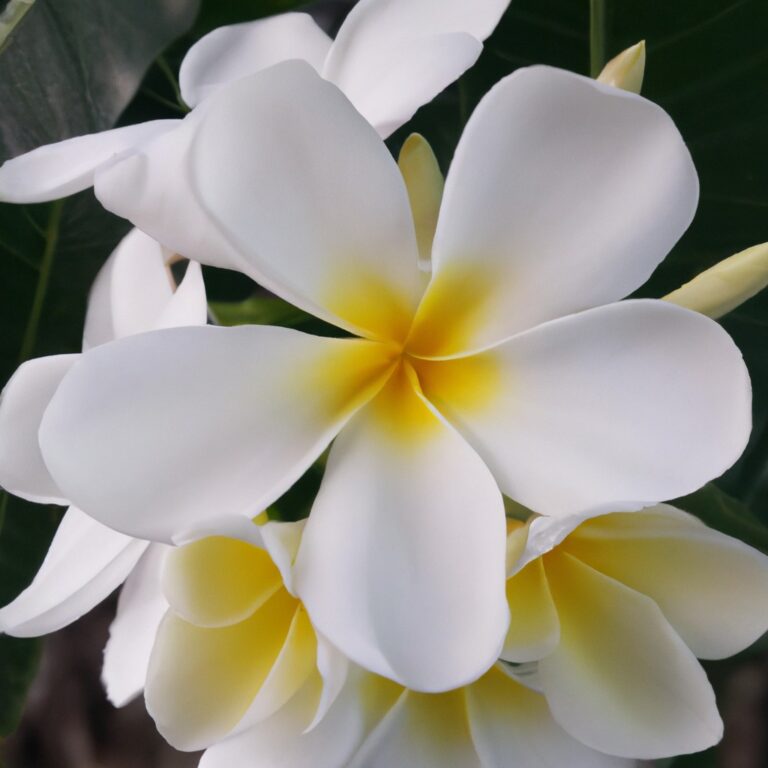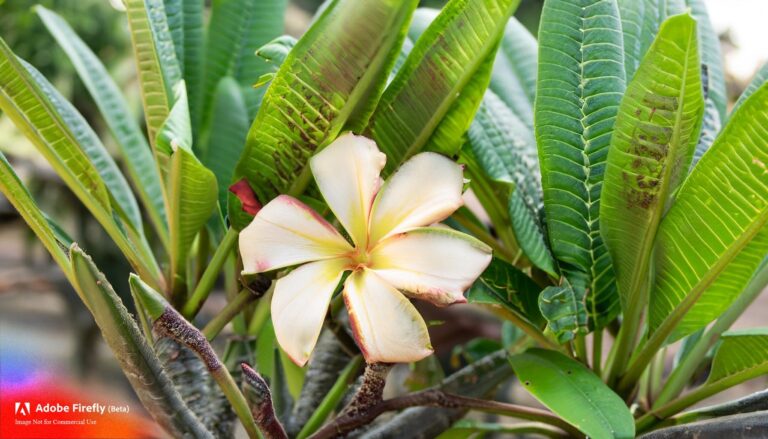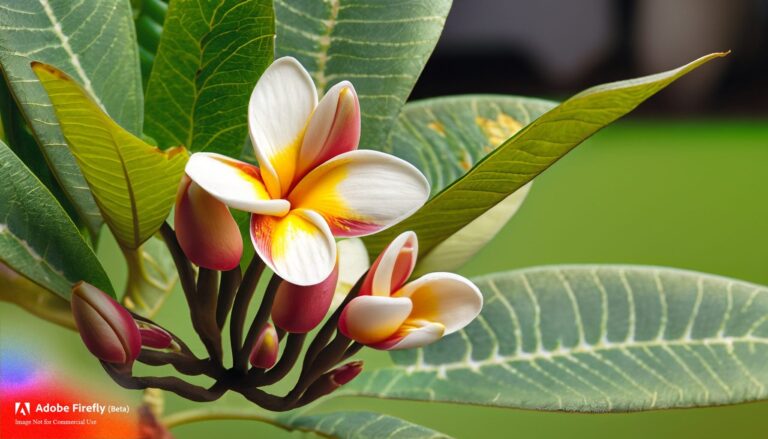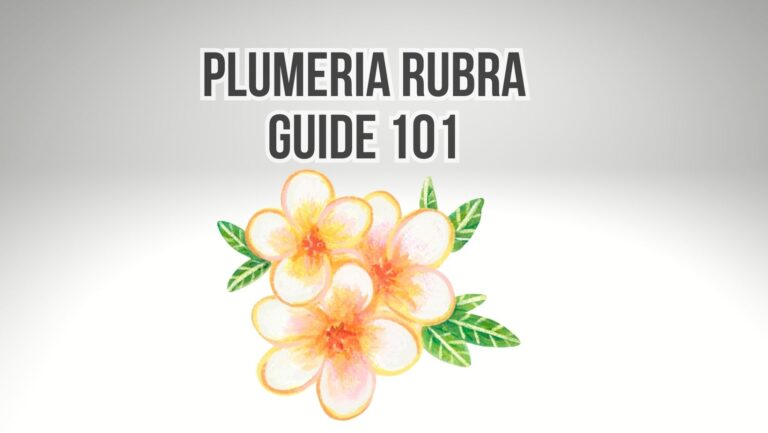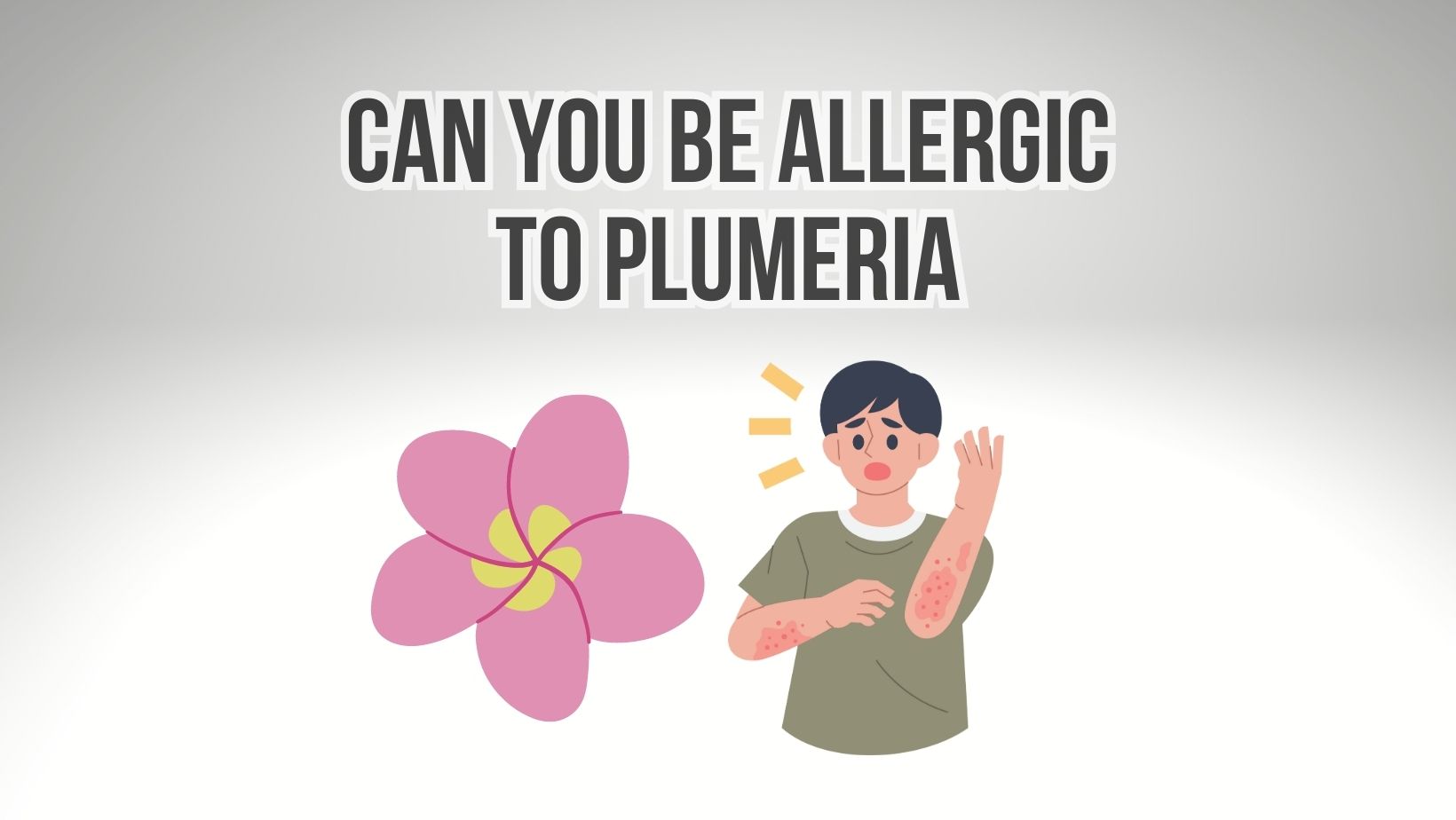
Plumeria, or Frangipani, is a beautiful flowering plant renowned for its captivating fragrance and stunning blossoms. While many people enjoy the sight and scent of Plumeria, it is possible for individuals to have allergies to this plant. Here’s what you need to know about the potential for allergic reactions to Plumeria.
Skin Irritation:
Some individuals may experience skin irritation when in contact with Plumeria. The milky sap present in the stems, leaves, and flowers of Plumeria contains compounds that can cause skin reactions in sensitive individuals. Common symptoms may include redness, itching, rash, or blisters. It is important to note that not everyone will react to Plumeria in this way, and the severity of the reaction can vary from person to person.
Fragrance Sensitivity:
While the scent of Plumeria is generally considered pleasant and appealing to most people, some individuals may have a sensitivity or allergic reaction to the fragrance. This can manifest as symptoms such as headaches, nasal congestion, sneezing, or watery eyes when exposed to the scent of Plumeria. Fragrance sensitivity varies among individuals, and not everyone will experience these reactions.
Precautions and Management:
If you suspect you may be allergic or sensitive to Plumeria, taking certain precautions can help minimize the risk of adverse reactions:
- Avoid Direct Contact: If you experience skin irritation when handling Plumeria, it is advisable to wear gloves or use protective clothing when working with the plant. This will help prevent direct contact with the sap and reduce the chances of skin reactions.
- Avoid Inhalation of Fragrance: If you have a sensitivity to the fragrance of Plumeria, it may be beneficial to limit your exposure to the scent. This can be achieved by avoiding close proximity to Plumeria plants when they are in bloom or by keeping them in outdoor areas where the fragrance is less concentrated.
- Consult a Medical Professional: If you have concerns about potential allergies or reactions to Plumeria, it is recommended to consult with a medical professional, such as an allergist or dermatologist. They can evaluate your specific situation, conduct appropriate tests if necessary, and provide personalized advice and management strategies.
Do Plumeria Flowers Have Pollen?
Plumeria flowers do have pollen. However, Plumeria is not known to be a major source of airborne pollen that causes allergies. The flowers of Plumeria are typically pollinated by insects, such as bees, butterflies, or moths, rather than by wind. The pollen produced by Plumeria flowers is generally heavy and sticky, making it less likely to be dispersed through the air and trigger allergic reactions in individuals who are sensitive to pollen.
Does Plumeria Cause Allergies?
Plumeria is not a common allergenic plant. While some individuals may experience skin irritation or fragrance sensitivity when in contact with Plumeria, true allergies to Plumeria are relatively rare. Allergic reactions to Plumeria, such as respiratory symptoms or systemic allergies, are not commonly reported. However, individual sensitivities can vary, and some people may still experience mild allergic reactions or irritation when in contact with Plumeria or its sap.
Plumeria Milky Sap Side Effects:
Plumeria plants produce a milky sap that is present in their stems, leaves, and flowers. This sap contains latex-like compounds, including alkaloids and irritants, which can cause skin irritation or allergic reactions in some individuals. Common side effects of contact with Plumeria milky sap may include redness, itching, rash, or blisters. It is important to handle Plumeria with care and avoid direct contact with the sap, especially for individuals known to be sensitive or allergic.
Frangipani Sap On Skin Treatment:
If you accidentally come into contact with Plumeria sap and experience skin irritation or redness, here are some steps you can take for treatment:
- Rinse with Water: Immediately rinse the affected area with cool water to help remove any sap residue and reduce irritation.
- Gentle Cleansing: Use a mild soap or gentle cleanser to wash the area, taking care not to scrub too harshly, as this can further irritate the skin.
- Apply Soothing Cream or Ointment: After cleansing, apply a soothing cream or ointment, such as aloe vera gel or a mild hydrocortisone cream, to help calm the skin and alleviate any discomfort.
- Avoid Scratching or Irritating the Area: It is important to resist the urge to scratch or further irritate the affected area, as this can prolong the healing process and potentially lead to infection.
If symptoms persist or worsen, or if you have a known allergy or severe reaction to Plumeria sap, it is recommended to seek medical attention for further evaluation and treatment.
Summary
Please note that the information provided here is not a substitute for professional medical advice. If you have specific concerns or questions about allergies or skin reactions to Plumeria, it is best to consult with a medical professional or dermatologist.
It is important to remember that while allergic reactions to Plumeria are possible, they are not extremely common. Many individuals can enjoy the beauty and fragrance of Plumeria without experiencing any adverse effects.
However, if you suspect an allergic reaction or sensitivity, taking precautions and seeking medical guidance for proper evaluation and management is best.

